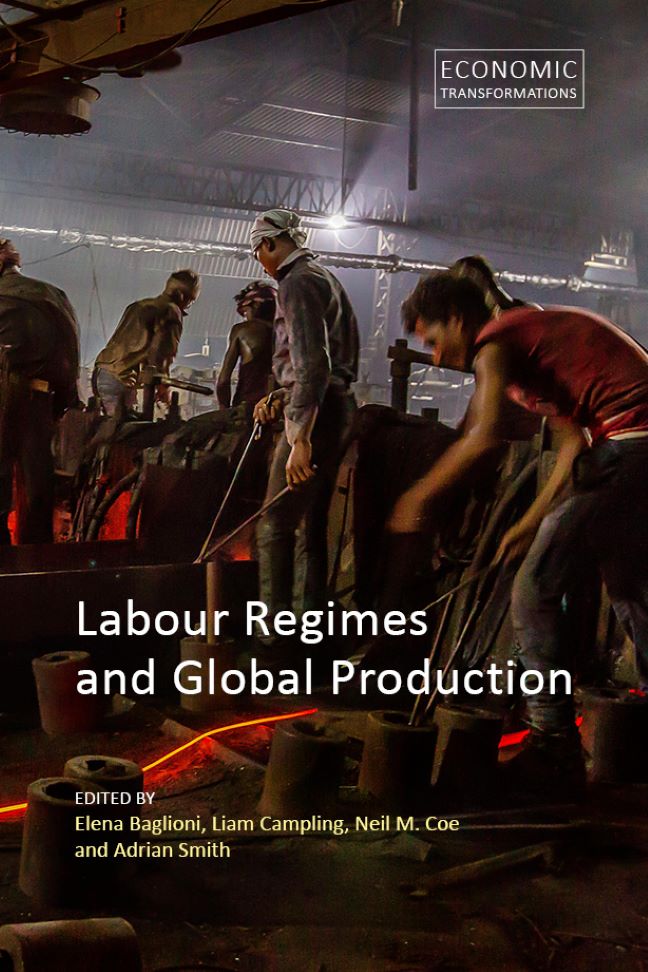1 - Introduction: Labour Regimes and Global Production
Published online by Cambridge University Press: 20 January 2024
Summary
Labour Regimes and Global Production: Intellectual Contexts
Huge strides have been made in recent decades in our understanding of the networked and dynamic forms of capital accumulation in the world economy. Ranging across foundational work on the new international div-ision of labour (NIDL) to more recent global production network (GPN) and global value chain (GVC) analyses, such work has enabled an enhanced understanding of the ways in which more globally integrated economies have developed and become consolidated. Until recently, however, this work has been more silent in terms of understanding both the employment and the labour consequences of these changes, and also the role that labour plays in the structuring and formulation of landscapes of accumulation. Although it is possible to diagnose a growing “awareness of the different forms of labour” enrolled into global production structures (Taylor et al. 2015: 9), alongside growing attention to social upgrading, the rights and voice of labour, and labour agency (Ramamurthy 2000; Barrientos, Gereffi & Rossi 2011; Coe 2015), we still see a tendency towards a capital-centric narrative focused on firms as the key agents and actors in global production systems.
Our approach in this collection is to recentre the analysis of global capitalism on the labour regime as the core of networked, scalar systems of economic integration and production. At its core, a labour regime signals the combination of social relations and institutions that bind capital and labour in a form of antagonistic relative stability in particular times and places. This recentring is important both analytically and politically. Analytically, it refuses to privilege any single site in a global production system but, rather, sees the labour regime as the societal framework through which capitalist accumulation at a world scale becomes possible. Politically, it positions labour at the heart of questions about how we understand and approach the global economy. By understanding and locating different forms and modes of work, labour regime analysis seeks to defetishize exploitation as a first step for building relationships of commonality between workers who are, seemingly, often disparate, including those whose labour is frequently “hidden” in informal or household economies. Labour regimes analysis exposes the multiple threads linking different workers both within systems of global production and also across workplaces, regions and countries, thereby indicating avenues for building new solidarities.
Information
- Type
- Chapter
- Information
- Labour Regimes and Global Production , pp. 1 - 26Publisher: Agenda PublishingPrint publication year: 2022
Accessibility standard: Unknown
Why this information is here
This section outlines the accessibility features of this content - including support for screen readers, full keyboard navigation and high-contrast display options. This may not be relevant for you.Accessibility Information
- 2
- Cited by
